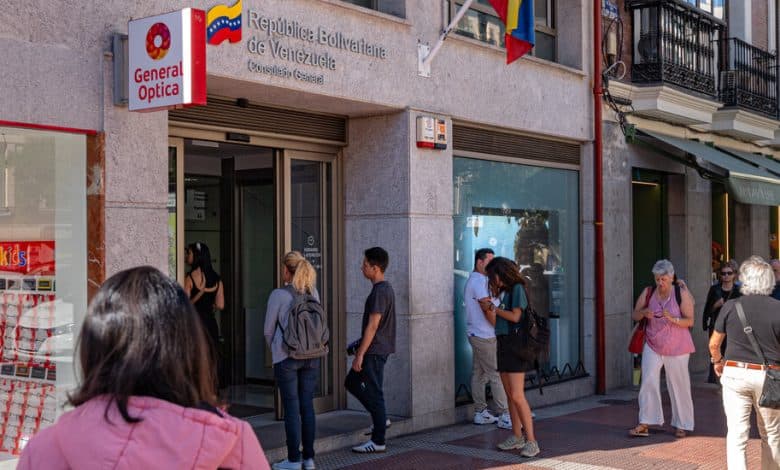They Fled Oppression at Home, but It Followed Them Abroad

The line outside the Venezuelan Consulate in Madrid stretched down the block. Pregnant women, families with small children, older people and those with disabilities arrived as early as 4 a.m. — five hours before the office opened — trying to register to vote in Venezuela’s highly anticipated presidential election.
Adriana Rodríguez, 47, who left Venezuela in 2018, showed up at 8 a.m., two days in a row. Both times, she waited four hours before reaching the front of the line, only to be turned away, she said, always with the same explanation: “They could not register any more people.”
With Venezuela’s authoritarian president, Nicolás Maduro, trailing badly in polls ahead of the July 28 vote, the government has imposed stringent rules making registering to vote nearly impossible for millions of Venezuelans living abroad, including in the United States, Spain and Latin American countries.
Many left their homeland because of harsh economic and political conditions.
As a result, the government’s tactics are tantamount to sweeping electoral fraud, election experts say, since as many as 25 percent of Venezuela’s eligible voters live outside the country, and a large number would most likely not vote for Mr. Maduro.
Between 3.5 million and 5.5 million Venezuelans eligible to vote live outside the country — out of a total electorate of 21 million people, according to election experts and opposition activists.